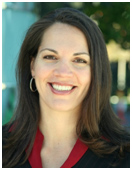by Brandi Durkac
 Social media, cloud computing, and mobile devices… oh my! Just by reading this blog, you have already demonstrated expertise and interest in using social media (what a blog is), the cloud (where the blog sits in cyberspace), and mobile devices (most likely how you accessed the blog). If you are an avid user of technology and are interested in exploring careers in the technology sector, you may have a great predisposition to thrive in the fast-paced, ever-changing, and potentially lucrative world of technology.
Social media, cloud computing, and mobile devices… oh my! Just by reading this blog, you have already demonstrated expertise and interest in using social media (what a blog is), the cloud (where the blog sits in cyberspace), and mobile devices (most likely how you accessed the blog). If you are an avid user of technology and are interested in exploring careers in the technology sector, you may have a great predisposition to thrive in the fast-paced, ever-changing, and potentially lucrative world of technology.
Although there are a myriad of opportunities for programmers and coders, you don’t need to be a computer science major to work at a technology company. Nor do you need to limit your search to only brand-named giants like Google, Microsoft, Facebook, and Apple. Some of the fastest-growing tech companies are not household names but are shaping emerging technologies in the cloud computing, biotechnology, solar energy, nanotechnology, software security, and social media. Check out Forbes latest annual report on the 25 fastest-growing tech companies.
Helpful Tips:
1) Where to Start: There are pros and cons to working in medium-to-large companies versus in smaller, start-up environments. Industry-leading Silicon Valley companies like Google, Apple, Oracle, Cisco, Genentech, and Salesforce.com, as well as established goliaths like IBM, Dell, Microsoft, and Amazon.com, have formal college recruiting targeted towards undergraduates. In addition to product development, some of these companies also offer internships in sales & business development, marketing, and customer support as a great way to get in the door. These larger companies often provide excellent training programs and opportunities for lateral and upward mobility in the organization. However, if an enormous corporate setting isn’t for you, there are also start-ups and smaller, fast-growing companies that are eager to find talented, motivated young people to help them build their company. Emerging enterprise social software companies like Lithium Technologies, Jive Software, LivePerson, Mzinga, and Drupal offer exciting opportunities in a fun, more intimate work environments that may be better suited for you.
2) Getting in the Door: There is no better way to get into technology companies than to use technology! A great place to start is with the Penn alumni network on LinkedIn and QuakerNet. See if you can find an alumnus/alumna working at these companies who would be willing to schedule an informational interview with you. If they think you would be a good fit and can help you, the good news is that you may also help them. Many companies offer referral bonuses to current employees that help recruit talented individuals to join the organization. Do your homework ahead of time to learn about what the company does and what jobs might be available on these companies’ websites.
3) Finding Your Niche: Remember that where you start is not likely where you will end up. The goal is to get in the door at a company that is financially stable and can offer you room to grow. The technology world is constantly changing – remember how quickly MySpace went from hot to not? – which will always present new and exciting opportunities for you. The more exposure you can get to different departments and functions within the company, the better off you will be. You will need to decide which side of the company you are better suited for: internal-facing operations and product development or external-facing sales, marketing, and support. I found sales to be a great first career for me to gain exposure to many departments in a company, to learn how companies make decisions, and to build a strong foundation of transferrable business skills that will be useful in any career, including working in higher education.
4) How To Learn More: You may be wondering about the best way to start learning technology jargon and industry lingo. I would recommend a combination of YouTube videos, industry publications, and helpful websites, such as Inc., Wired, Fast Company, and InfoWorld to bring you up to speed. Salesforce.com has published several excellent YouTube videos on cloud computing, which provide an easy-to-understand definition of “the stack” – the hardware infrastructure, database servers, application servers, web servers, user interfaces, and application interfaces upon which any software application runs — and explain why most companies are moving towards cloud computing platforms. 100 Best Companies to Work For is another great resource to help focus your search.
The sky is the limit! Reach for the clouds and you just may end up working in one.
 About the author: Brandi received a B.S. in Economics and Spanish from the University of Virginia. She spent ten years working in Silicon Valley at Kana Software, Inc. and Salesforce.com, Inc. and is now completing her M.S.Ed. in Higher Education Management from the University of Pennsylvania.
About the author: Brandi received a B.S. in Economics and Spanish from the University of Virginia. She spent ten years working in Silicon Valley at Kana Software, Inc. and Salesforce.com, Inc. and is now completing her M.S.Ed. in Higher Education Management from the University of Pennsylvania.









